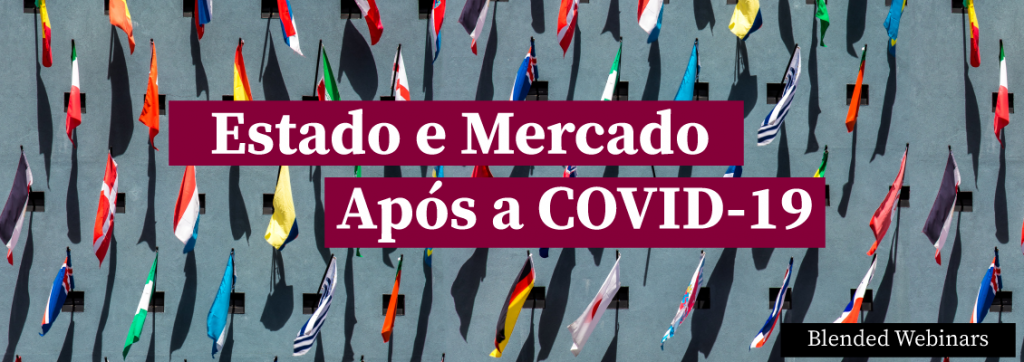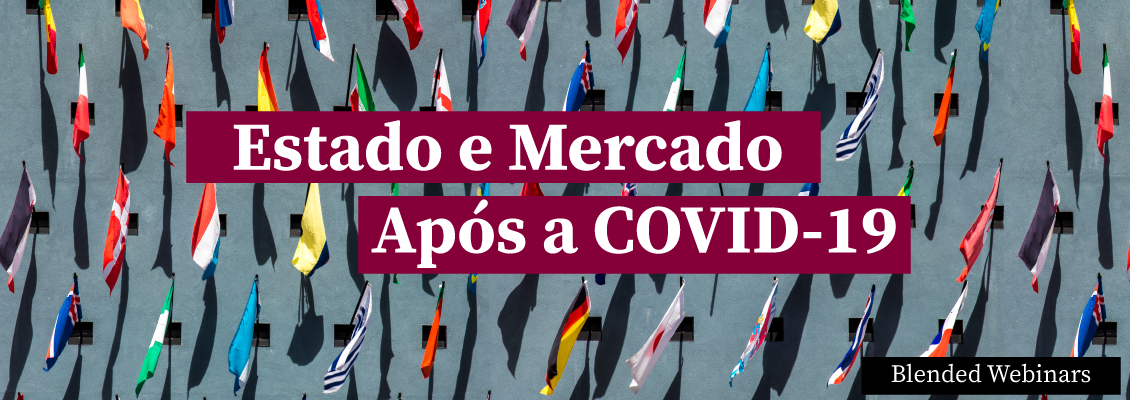Blended Webinar brings up the relationship between State and market after Covid-19
Aberje and King’s College London promote the webinar with the theme “Brazil and the United Kingdom: Dialogues and Narratives – State and Market after Covid-19”

The relationship between State and market after Covid-19 was the subject of the Blended Webinar State and Market After Covid-19, an international event held on April 12, promoted by Aberje in partnership with the King’s Brazil Institute at King’s College London. On occasion, academic and private sector experts discussed the contribution of communication to a productive dialogue between a more robust regulatory state and the corporate sector
The webinar was attended by Júnia Gama, a political analyst at XP Investimentos; Jonathan Portes, professor of Economics and Public Policy at King’s College London; and Cecilia Tornaghi, Americas Quarterly executive editor. The event was curated by Daniel Alves, a Ph.D. candidate in the Department of Political Economy at King’s College London and an affiliated researcher at the King’s Brazil Institute, and Sebastián Ronderos, a researcher at the University of Essex and Aberje contributor.
When commenting on the relationship between the market and the Brazilian government during the Covid-19 pandemic, Júnia Gama stressed that the government had to abandon its liberal bias proposed by President Jair Bolsonaro and Economy Minister Paulo Guedes. “Populism gained strength in this episode, which annoyed the domestic and global markets. The relationship between the market and the government was unstable, as the financial market could not rely on the government plan, which was also unstable,” she said.
Cecilia Tomaghi noted that a part of the social group already economically excluded suffered even more during the pandemic. “The health crisis has opened up social inequality,” she said. “And what are the obligations of governments concerning the economic world and sustainability?” asked Jonathan Portes when talking about macro and micro-economy. “How can we formulate a new sustainable and fairer economic model to benefit all social groups?” he continued. According to him, this reality is still far away.
The future of Mercosur was another point highlighted in the webinar. “I don’t think alliances between countries, whatever they are, will change. I want all of this to get better, but unfortunately, I don’t see it in the future,” said Tomaghi.
When questioned by Paulo Nassar, Gama stressed that the way Bolsonaro treated the pandemic – like a “little flu” – worsened Brazil’s depression and distance from the leading role of other countries.
Destaques
- Theme of the Year “Communication for Transition” Renewed for 2025
- Web Summit Lisbon 2024: Innovation and Ethics in a Future Shaped by AI
- Global Alliance Launches Recognition Program for Young Communicators
- Alejandro Cornejo Montibeller Joins the Latin American Regional Council of the Global Alliance
- LiderCom Meeting Discusses International Expectations for COP30
ARTIGOS E COLUNAS
Carlos Parente Na comunicação, caem por terra influencers sem utilidade e erguem-se, aos poucos, os curadores de conteúdoGiovanni Nobile Dias Como você tem nutrido seu cérebro?Marcos Santos Por tempos melhoresThiago Braga O impacto de modernizar a Comunicação Interna em uma grande indústriaGiovanni Nobile Dias O alarmante retrato da leitura no país




























